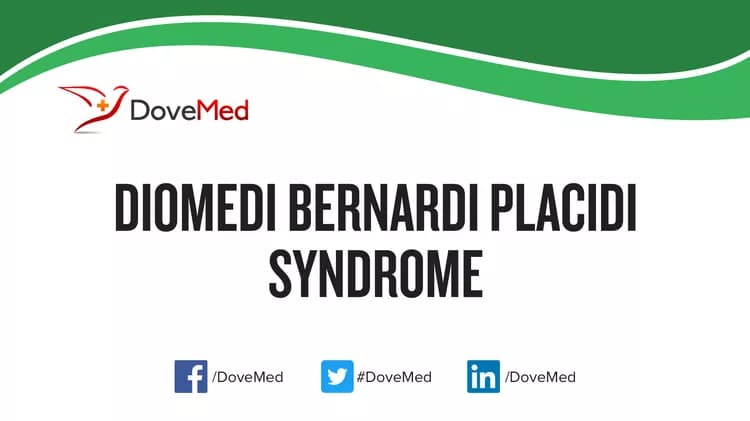What are the other Names for this Condition? (Also known as/Synonyms)
- Spastic Paraplegia, Epilepsy and Mental Retardation (SPEMR)
- Spastic Paraplegia-Epilepsy-Intellectual Disability Syndrome
- SPEMR (Spastic Paraplegia, Epilepsy and Mental Retardation)
What is Diomedi-Bernardi-Placidi Syndrome? (Definition/Background Information)
- Diomedi-Bernardi-Placidi Syndrome, also known as Spastic Paraplegia-Epilepsy-Intellectual Disability Syndrome, is a rare inherited group of disorders
- The disease is characterized by spasticity and weakness of legs, epilepsy and intellectual deficiency
Who gets Diomedi-Bernardi-Placidi Syndrome? (Age and Sex Distribution)
- Diomedi-Bernardi-Placidi Syndrome is a rare congenital disorder
- The presentation of symptoms may occur in childhood. In most cases, the onset of symptoms occur before the individual turns 40
- Both males and females may be affected
- Worldwide, individuals of all racial and ethnic groups may be affected
What are the Risk Factors for Diomedi-Bernardi-Placidi Syndrome? (Predisposing Factors)
- A positive family history may be an important risk factor, since Diomedi-Bernardi-Placidi Syndrome is known to be inherited
It is important to note that having a risk factor does not mean that one will get the condition. A risk factor increases one’s chances of getting a condition compared to an individual without the risk factors. Some risk factors are more important than others.
Also, not having a risk factor does not mean that an individual will not get the condition. It is always important to discuss the effect of risk factors with your healthcare provider.
What are the Causes of Diomedi-Bernardi-Placidi Syndrome? (Etiology)
- The exact underlying cause of Diomedi-Bernardi-Placidi Syndrome is currently unknown
- Published literature states that the disorder is inherited in an autosomal dominant manner, with incomplete penetrance
- In autosomal dominant inheritance with incomplete penetrance, an individual may not develop symptoms even when he/she is carrying a defective gene copy in each cell of his/her body
Autosomal dominant: Autosomal dominant conditions are traits or disorders that are present when only one copy of the mutation is inherited on a non-sex chromosome. In these types of conditions, the individual has one normal copy and one mutant copy of the gene. The abnormal gene dominates, masking the effects of the correctly function gene. If an individual has an autosomal dominant condition, the chance of passing the abnormal gene on to their offspring is 50%. Children, who do not inherit the abnormal gene, will not develop the condition or pass it on to their offspring
What are the Signs and Symptoms of Diomedi-Bernardi-Placidi Syndrome?
The signs and symptoms of Diomedi-Bernardi-Placidi Syndrome vary between affected individuals in type and severity, and may include:
- Spasticity (stiffness) of lower limbs
- Weakness of legs
- Seizures
- Intellectual deficiency
How is Diomedi-Bernardi-Placidi Syndrome Diagnosed?
Diomedi-Bernardi-Placidi Syndrome is diagnosed on the basis of the following information:
- Complete physical examination
- Thorough medical history evaluation
- Assessment of signs and symptoms
- Laboratory tests
- Imaging studies
- Biopsy studies, if necessary
Many clinical conditions may have similar signs and symptoms. Your healthcare provider may perform additional tests to rule out other clinical conditions to arrive at a definitive diagnosis.
What are the possible Complications of Diomedi-Bernardi-Placidi Syndrome?
The complications of Diomedi-Bernardi-Placidi Syndrome may include:
- Abnormal gait
- Possible falls with weakness in legs
- Decreased quality of life
- Epilepsy leading to the following:
- Trauma/injury: Seizures can lead to fall injuries affecting the head, or cause bone fractures
- Status Epilepticus is a seizure that lasts longer than normal. A time duration of 30-60 minutes is generally considered a minimum requirement for usage of the term ‘status epilepticus’, to describe the condition. It is considered a serious life-threatening condition and is a medical emergency
- Psychological issues; especially depression, anxiety, and in some cases suicidal tendencies are noted
- Complications during pregnancy: There is a potential for reduction in fertility. Certain anti-epileptic medications increase the risk of birth defects
- Sudden unexplained deaths with Epilepsy: This phenomenon is not well understood, but could be related to disturbances in the heart's rhythm or due to breathing problems
- Inability to live independently
Complications may occur with or without treatment, and in some cases, due to treatment also.
How is Diomedi-Bernardi-Placidi Syndrome Treated?
There is no cure for Diomedi-Bernardi-Placidi Syndrome, since it is a genetic condition. The treatment is usually given to manage the signs and symptoms and any complication that develops.
How can Diomedi-Bernardi-Placidi Syndrome be Prevented?
Currently, Diomedi-Bernardi-Placidi Syndrome is not preventable, since it is an inherited genetic disorder.
- If there is a family history of the condition, then genetic counseling will help assess risks, before planning for a child
- Active research is currently being performed to explore the possibilities for treatment and prevention of inherited and acquired genetic disorders
- Regular medical screening at periodic intervals with tests and physical examinations are recommended
What is the Prognosis of Diomedi-Bernardi-Placidi Syndrome? (Outcomes/Resolutions)
- The prognosis of Diomedi-Bernardi-Placidi Syndrome is dependent upon the severity of the signs and symptoms and associated complications, if any
- Individuals with mild conditions have better prognosis than those with severe symptoms and complications
- Typically, the prognosis may be assessed on a case-by-case basis
Additional and Relevant Useful Information for Diomedi-Bernardi-Placidi Syndrome:
The following DoveMed website link is a useful resource for additional information:
Related Articles
Test Your Knowledge
Asked by users
Related Centers
Related Specialties
Related Physicians
Related Procedures
Related Resources
Join DoveHubs
and connect with fellow professionals


0 Comments
Please log in to post a comment.